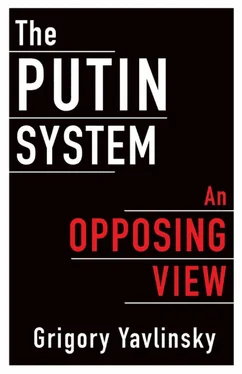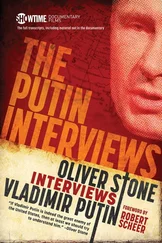Thus, during that relatively brief period of a transitional—or, so to speak, an immature—authoritarianism, the characteristics of the ruling group’s social base of support were largely skewed toward the model of authoritarian modernization. Under this model, as we know, the leading role is played by capital owners and the “aristocracy” of uniformed services, while the working masses are reduced to beasts of burden, toiling under Spartan conditions compared to those of a modern welfare state, with a minimal government-sponsored safety net. The civilian bureaucracy, overall, was already in an undoubtedly privileged position. Yet, at the time, only the tiny upper crust of this stratum, virtually an exclusive club among them, could claim to be the dominant, ruling force in the country. The bulk of this bureaucracy did not feel that they were the core, the social base, or even the beneficiaries of the political system that was taking shape at the time and has reached its maturity today.
Nonetheless, as the system was ripening, these social strata began to perceive themselves differently, and the ruling circle changed its approach toward them. The elites increasingly came to realize that, in spite of Russia’s rising incomes, the country was not getting any closer to the West, the most developed core of world capitalism, and was, at best, sliding along in a circular orbit, making rounds without any visible hope of joining the global club of the mighty and the powerful. With this understanding, members of the ruling circle also experienced a change in their thinking about the kind of society in which they were going to live in the coming decades. And it became obvious to them that only natural resources—mainly oil and gas, and more precisely their export abroad—generate the large financial flows that the ruling group is capable of detecting, tracking, and utilizing; therefore, there was less and less need to seek the support of the entrepreneurial class.
Russia’s elite believe that such natural resources belong to the state and not to the companies that extract or export them, even if these companies are privately owned. And because the ruling group genuinely views itself as equivalent to the state itself, it does not see any need to seek the goodwill or assistance of private business owners in order to control the revenues generated by the exploitation of these resources. Rather, the opposite is true: the government decides who among the entrepreneurs will get a chance to have a piece of the pie or get a contract to service this national feeding trough of natural resource utilization, and how much each one will get. Moreover, from the point of view of the authorities, giving private businesses a formal role in making money off natural resources achieves nothing except to nurture their illusions about actually owning those resources; it also feeds their aspirations to control related resources and financial flows on their own, which means claiming a significant role in the governance of state and society.
The ruling group could not conceivably let this happen. It was only logical for them to take over—not just in de facto but also in legal terms—the key sources of oil and gas revenues and to place them under the control of the government as their “natural” owner. Hence the setting up of new, giant, government-owned companies—Rosneft and Gazprom Neft—to work in oil extraction; hence the de facto nationalization of oil and gas companies Sibneft and Yukos; and hence Gazprom’s official monopolistic hold on the export of natural gas. Most important of all, the authorities must show private “capitalists” that all resources in the country, and all large-scale financial assets based on these resources, are—by default and because this is “the way it is”—the property of the highest government authority, to be used by others only for a period of time and only with the permission of the Kremlin. The property rights on these assets belong to the state (that is, to the ruling circle), are inalienable in principle, and cannot be entrusted to the “elemental” forces of the market.
For private business outside of the resources industry (which, of course, in today’s Russia means primarily trade, finance, and business services), in the context of the economic system that has taken shape in the country, the further a business is removed from government monitoring and control, the higher the profitability and the safety of the business will be. Therefore, it would be risky or even naive on the part of the authorities to look within this stratum for a subgroup that would constitute a potential social base for them or, in broader terms, for any institution whatsoever.
On the other hand, the increasing ability of the government to amass control over financial resources, primarily those generated by rent extraction in the oil and gas industry, has enabled the authorities to develop a different social base for themselves, consisting of groups that are dependent upon government payments. In the first decade of the century, such groups’ level of consumption grew rapidly, due to the steady growth of these government expenditures. This large stratum includes employees of government agencies and their families; those whose well-being depends upon government contracts, not just on the federal but also on the regional and municipal levels; and recipients of pensions, social assistance, and other public payments.
It was from among these groups that the Kremlin drew support for itself in the elections, and partly in the process of governing during the first decade of the twenty-first century. These groups were the prime targets of propaganda efforts that were plain to see in the broadcasting policies of the national TV channels. During this period, these TV companies significantly shifted their emphases and preferences with regard to the political tenor of their broadcasting. Previously, in the 1990s, their primary message had consisted of urging energetic and ambitious individuals to get away from dependence upon the government and to transform themselves into independent players in the capitalist game, even if that meant failing to scrupulously abide by the laws. Now, in the aughts, these very same media increasingly exhibited the tendency to engage with the aforementioned groups that were dependent on government payments, to cater to their priorities and their distinctive ways of thinking. Among the propaganda spins that fit into this trend were the glorification of stability and the ominous daily reminders about the “wild 1990s” as Russia’s dark age; the relatively frequent pay raises for government employees and contractors; [12] While these raises have been very modest in absolute terms, they give the impression that the Kremlin views raising public sector wages as its priority.
and, finally, an almost officially nurtured nostalgia for Soviet times, which celebrated the era’s “heroes of labor” and “intelligentsia of simple backgrounds” and cultivated the notion of a modest but growing well-being.
After the turn of the century, the social status of the government bureaucracy undoubtedly started to increase, and its actual material and intangible resources were growing conspicuously. Never mind that the portrayal of this class in the mass-oriented propaganda was still primarily negative or that the ruling circle was putting upon these bureaucrats the onus of responsibility for the many outrageous things in everyday life and beyond that caused irritation among the masses of Russians. Initially, the bureaucracy’s rising fortunes were mostly caused by the authorities’ informal permission for it to get more assertive in its behavior.
By the end of that decade, however, the official compensation for members of the government bureaucracy, starting with its upper crust, also began to grow exponentially, while the gap between them and the majority of employees in Russia became unprecedentedly large. This in itself was an indicator of the changing role of this class within the framework of Russia’s authoritarianism. Unsurprisingly, virtually every survey of professional and career preferences among young Russians, beginning from 2005–2010, showed that government service was becoming an increasingly popular choice, while young people’s interest in entrepreneurial career opportunities was declining.
Читать дальше












